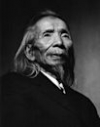•Menu
•Top News
-
 In Memory of Singer Nhật Sơn
In Memory of Singer Nhật Sơn
-
 Gia Bao revealed the reason behind Minh Canh’s invitation to participate in Vietnamese talent promotion
Gia Bao revealed the reason behind Minh Canh’s invitation to participate in Vietnamese talent promotion
-
 “First famous vocalist” Minh Canh 86 years old: How is your health and voice?
“First famous vocalist” Minh Canh 86 years old: How is your health and voice?
- Japanese artist: Why are Vietnamese people so kind and beautiful?
-
 Artist Minh Canh suddenly has a second live show
Artist Minh Canh suddenly has a second live show
-
 After Decades Under the Bed, a 1974 Vietnamese Film Finds an Audience Online
After Decades Under the Bed, a 1974 Vietnamese Film Finds an Audience Online
-
 Artist Kieu Phuong Loan is surprised to see her image 35 years ago
Artist Kieu Phuong Loan is surprised to see her image 35 years ago
- 5.000 Vietnamese studying in France: What's new in visa and scholarship policies in 2024?
-
 Doan Minh Tai looks like a gentleman, wearing a Mon Amie suit
Doan Minh Tai looks like a gentleman, wearing a Mon Amie suit
-
 Annual Book Street Festival 2024 on Tet holiday to open on February 7
Annual Book Street Festival 2024 on Tet holiday to open on February 7
•Random News
•Counter
![]() Online :
7
Online :
7
![]() Today :
71
Today :
71
![]() This month
: 88765
This month
: 88765
![]() Total : 2632712
Total : 2632712
 »
News
»
Culture
»
News
»
Culture

Vietnam's banh mi named world's most delicious sandwich
ietnamese banh mi (baguette) has been ranked first in the list of the top 100 sandwiches in the world by international food website Taste Atlas.
Movie Film about Cai Luong: Song Lang (2018) by Leon Le
Posted at: TUEsday - 26/02/2019 13:04 - Viewed: 3965
SL

It’s the end of 1980s in Saigon. Introverted debt collector Dug (Lien Binh Phat) has been sleepwalking through most of his adult life in an attempt of erasing a painful adolescence and anesthetizing the pain of abandonment. He does his job, it’s just a job, an “honest” job because it doesn’t promise or deceive you; a
Despite the theatrical past, Dung shows his ruthless gangster façade to the

“Song Lang” is a love story, gently told and slowly unraveling. The director’s devotion for stage performance and Cải Lương is what has influenced all his life choices as a performer and director, taking him to this point; his movie is a passionate love letter to his teenage time in Saigon in the 80’s, his tape cassettes and the way art influences life and vice versa.
Visually speaking, “Song Lang” is truly stunning, each shot is beautifully composed and the rich honey color palette makes the whole film looking like encased in amber with touches of jade and turquoise, and infusing it with a vintage allure that recalls the 60s more than the 80s but – together with the unlikely deserted streets of Saigon – it works as a sort of benign decontextualisation. If on one hand the movie strongly refers to a time and a place, on the other it has a peculiar theatrical feel to it, like a meta-stage where the actors play
There is an undeniable chemistry between the two actors/characters that makes the narrative more engaging and keeps the grip for the whole film. Lien Binh Phat and Isaac, two Vietnamese heart-throbs and pop figures, give textured, believable performances, their charm being an effective conveyor of a love story yet to blossom.

When the two young men talk on the rooftop, in their decisive night out together, Linh says he believes time traveling is possible in three ways: through people, objects and places. In the same way director Le has traveled back to his Saigon time and unsurprisingly locations and props are the “primadonna” in “Song Lang”. Shot in District 5, an area of Ho Chi Minh City that still retains a vintage feeling, the team has succeeded in making the most of the local gems like the Thien Hau Temple with its incense coils (it will look familiar to Hong Kong lovers), and the existing and functioning Phuong Nam theatre.
While it’s almost impossible not to recall “Farewell My Concubine”, several settings are very reminiscent of Wong Kar-wai’s esthetic, like the striking rooftop scenes, so evocative of “2046” and “Happy Together”, and Dung’s 50’s apartment block with its green mosaic tiles and diagonal light projecting patterns on the wall, citing “The Hand”, “Days of Being Wild” and – again – “Happy Together”. But all in all “Song Lang” wholeheartedly owns a distinctive and elegant flavor and is jam-packed with meaningful, accurate details, lovingly curated and profoundly inherent to Vietnamese popular culture.
Interview with Leon Le: Violence is like a band-aid you put on a wound that will never heal.
Vietnam-born director Leon Le grew up in Saigon before relocating with his family to California at the age of 13. He later moved to New York – where he still lives – to follow his dream of becoming a Musical Theatre performer and established himself as as an accomplished actor, dancer, singer as well as a skilled photographer.
His first feature film “Song Lang” encapsulates his passion for music and performance, his childhood memories of Vietnamese folk opera Cải Lương and his photographic sensibility. The movie had its theatrical release in Vietnam and its first international premiere at Tokyo International Film Festival.
On the occasion of Song Lang
You were born in Vietnam and moved to US when you were 13. How do you think this event shaped you as a person and as a director?
I think I left at the right age, because I was old enough to remember everything but still young enough to adapt into the American way of life and all the culture and way of thinking of the western world. I think if I had left one year earlier, I might have had hard time remembering things, especially the language. If I had left a couple of years later, then I would have had a hard time to adapt into the American way of living and fully understand it, so I think it was a good age for me to leave. For the first 10 or 15 years of my life there, I was too busy pursuing my dreams and goals in the States so I didn’t really look back or think much about Vietnam except the fact that the only things that were really connecting me to Vietnam were Cải Lương – I was still listening to it – and my family, that was what connected me.
But then, as you grow old as an artist, especially living in New York where different cultures and ethnic backgrounds are really embraced, you tend to look back and want to find out more what you are and there is a point where you realize that you are never going to become fully American. As a young person trying to fit in – and I was trying hard to be part of this new world – I realized I could be both, I could be a Vietnamese-American and so I started to look back where I came from and with that in mind, I started to go back to Vietnam and that opened up many experiences and opportunities.
And how did the realization of being a Vietnamese-American influenced your work as a director?
Filmmakers who come to Vietnam from abroad have a different view and a different look of Vietnam and I think it has lot to do with the fact that when you are outside and you look in you have a different perspective, a different point of view. For instance, if I was living in Vietnam, I probably wouldn’t appreciate the 1980s as much as I do now. As a person who left, looking back, there is a sense of nostalgic, a sense of romance, I look at it as a very romantic era. But if I was living there continuously, I probably wouldn’t appreciate it as much and the way I look at Cải Lương or the way I catch it on film, probably wouldn’t be as unique if I was living there. Because now I look it as a person who works in theater in NY and so I can see all the interesting point of view and architectures and textures of Cải Lương, that probably, I would never see if I was living in Vietnam the entire time.
 Why did you decide to shoot a film about Cải Lương and what do you like about it?
Why did you decide to shoot a film about Cải Lương and what do you like about it?
I was obsessed about Cải Lương ever since I was a child and my dream was to grow up and become a Cải Lương performer; so when me and my family moved to the States, I decided that it was never going to happen and also by the time we left Vietnam, Cải Lương was already on the way of dying. But I knew that if in the future there was a way, I would have done something about it, something with it. My original dream was to go to Vietnam and direct a live show, but in 2007 I went back for the first time and I realized it was a very unrealistic dream, because to make that happen it was going to require a lot of effort in term of
I still wanted to do something with it so I decided a film is a better ”me” and since that art is not longer appreciated in the country, maybe I could preserve it in some way and introduce it to the world, so that maybe in the future, when it is completely gone, people will know that once upon a time, Vietnam had this art. Chinese had the Peking Opera, Japanese had No, I wanted to show that Vietnam had something too.
So you think it will disappear?
I think, eventually, maybe it’s not going to die completely but it will never be the way it was any more,
The music in the film is a bit of a mix, the show has traditional music but the score is more contemporary …
Yes, that is the discussion I had with my composer, he is a Vietnamese/French composer (An Ton That). We didn’t want the score to be too Cải Lương because that is already very dominant on the film and also we thought the score is emotion and it should have a universal feel.
Dung’s life is dominated by violence, how do you think a life of a man can become like that and why did you choose such a protagonist?
People can become like that. In this particular case, I feel he turned this way because he let go of his life and that’s a way to revenging the fact that his mother abandoned him. This is very much the way I think, I can understand how a person can destroy his own life, just like ”look, you did this to me and now I let go of my life” and abandon his life, and in a way say ”fuck you” to the world. But inside, he is like a Crème Brûlée, he is hard on the surface but if you poke him hard he is all mushy inside and he’s going to break. Basically, the violence, the anger is like a band-aid you put on a wound that will never heal.

The protagonists in the film
Yes, that is a very very big part of my growing up in the 80s, the Nintendo and that particular game that you see in the film and the whole culture of renting videos, Hong Kong and Chinese films, and also Taiwanese moviesm that were starting to come to Vietnam. And that was a reason why Cải Lương was going into dying in the late 80s, because people could stay at home with a video instead of paying lots of
Was it hard to find all those old video-games and consoles?
It wasn’t that hard, actually there is a trend of those games coming back in Vietnam now and there are lots of machines made in Thailand and China that copy the look of it and they are all over Vietnam. There is a trend of collecting them so we didn’t have a hard time to find them.
I think that one of the basic elements of the film is how art influences life and vice versa. Can you elaborate on this?
I think there are two things that are universal and those are human relationships and art and these are things you don’t need to understand the language or the meaning behind them, you can just feel them, and those are the things that connect people. You don’t have to understand an Opera in a different language, but you can just feel the emotions and those things can connect people. You look at a painting and you don’t have to understand why people do that, if it makes you connect to it then it’s for you, and I think those are the only things that are easy to understand and connect people.
That’s why in my films, those are the things that always interest me and are the things I feel most confident in terms of storytelling, and in this case, art connects these two characters. I think that in the time of lost hope, the beauty of art can give you hope. In terms of Dung, it’s the art that lead him back to the right way, Linh is the representation of the beauty of life and the beauty of art, specifically Cải Lương, all things that have been missing in his life all those years because of the anger and the hate. He allows himself to emerge and Linh is the symbol of all the things that drag him out from the water and bring him back to life.

The story implies that there is more than a simple friendship between the two men, but why did you decide to present it so subtly?
That is correct. When I wrote the script, the intention was to write a love story – this is a basically love story, a romantic love story – but then one of the things I determined from the beginning was: if this is going to be a LGBT story, a gay love story, then I’m going to do it in a way that would be different from most of the gay films I have seen before, films of the gay genre, which are very sexualised and stereotyped. Especially in Vietnam, gay characters are often used to be a mockery, to be exaggerated and I wanted to see if I could connect the audience with the characters and make them feel that love is the connection between these two characters. Without the other element, without showing anything sexual at all and see if they can still feel love. And the same thing with my last two films, which were gay shorts, in which also I eliminated the sexual element of the story.
When the two men are on the roof together at night Linh says he believes time traveling is possible in three ways: through people, objects and places. Can you explain this a bit?
This is something that I personally feel. A lot of the dialogues and situations in the film come pretty much from my experience. Not in particular – I never fell in love with a Cải Lương performer or a debt collector – but the situations of the morning standing next to someone at the window, feeling the electricity, not touching but feeling that there is a connection or spending all night talking to somebody, those are the things I have experienced and a lot of the conversations and way of thinking come from those conversations I had, and this particular idea of traveling through time is something I believe.
That is why I love photography and love films, because these are two media that have the power to help me escape, or travel trough time, or inspire me to see the future. So these are things I believe and also with the film, with the sound, the songs, all the little noises and the costumes, the video-games and the Cải Lương, I wanted to take the audience back to time and I wanted to see if I was able to do it, take the audience back in time to Vietnam in 1980, which I think it was a particular time in Vietnam. It was scary and lonely because the country wasn’t open but at the same time there was a sense of innocence; you felt safe but scared at the same time because you didn’t know what tomorrow was going to be like. There is also something very romantic in this, because you feel you are on your own, in this little bubble, you don’t know what is going to happen tomorrow but at the same time we are all in it together.
The presentation of the era is rather good. How do you manage to present the 1980s so well?
A lot came from my memory, we didn’t have the budget to recreate big scenes of Saigon so we had to use lots of tricks and that’s where all the little hands come in, like the video-games, the music from the speakers in the mornings and the songs shown in the film; those are the things that help the audience to understand the era and the timeline of the film.
It was a very difficult task, because Saigon is very different now, basically everything has been demolished and rebuilt, but in an ugly way, not like in Singapore, because buildings are poorly structured with ugly design. The only part of Vietnam that still has the look of old Saigon is District 5 which is Chinatown, where 90% of the film has been shot. It was very difficult to find all the props, because the film industry in Vietnam is not that professional in comparison with the rest of the world, we don’t have warehouses of prop and objects from the past, so we had to recreate a lot. I was very nervous about people thinking it didn’t look authentic and I was pretty shocked when people believed what we presented.
You know, as a filmmaker you do your best and you hope for the best, you are never sure if it’s going to work for the audience, you look at it every day and you know it’s fake or it’s scripted but yes, I am shockingly surprised that people connected to it and believed what we presented.

And what about the presentation of Cải Lương? Was it difficult to put together all these costumes, the musicians, the sets?
Oh, the Cải Lương part wasn’t too hard. First of all, as I mentioned, I was obsessed with it so I understand Cải Lương very well. I also designed the costumes, I do have an obsession! Cải Lương was different in the 80s. Cải Lương means ”improving art form’ so it constantly improves and changes, in the 80s there was a specific way of doing hair, make up and costumes. Nowadays Cải Lương is different, they don’t do it in that way now any more. I had lots of help from the people of he Cải Lương industry, they are much older now but still alive and they were very active in the 80s, so I got to connect with them and they helped me. Because even though I loved Cải Lương, what I knew back then it is from a 13 year-old persepctive. As an outsider looking in, I didn’t know what the backstage is like, what is like to be in a little company, so I had all this help from the people that used to be performers.
What about the Cải Lương actors singing in the Cải Lương scenes?
Yes, that was one of my requirements for the role of Linh, I didn’t want to have dubbed actors, even though you can never expect the lead actor (Isaac) who is a pop-star in Vietnam, to sound or act as good as the professional Cải Lương performers that have years and years of training, ever since they are little kids. He only had one month of training, but i think it is much more interesting when the actor does all by himself, especially for this part, he had to understand the difficulty and the hardship of training and singing the part and dance the part in order to portrait the role, even though he would’ve been so much better if he had someone else singing for him, but that is not art. It’s cheating. I prefer that it’s not 100% perfect but that the does it himself.

And about the casting process, how did you come across Lien Binh Phat?
This movie is the story of Dung and from the beginning I was determined that Dung would be an unknown, preferably someone that had never acted before. My thinking is that with this type of film, the audience has to come in and from the opening moments they have to believe the character, in order for them to follow the story and stay with the character, because in this is not the kind of film that has lots going on in terms of story. People don’t go to see a Tom Cruise film to see how he disappears in the role. They don’t need to believe that Tom Cruise is a detective, they just want to see Tom Cruise running around and do action stuff.
This is not that kind of film, people have to believe the character in order for them to sit through the 90 minutes and have an emotional connection with the characters, so from the beginning, I thought I didn’t want a star to play this part. So Phat was coming in for an open casting, he came in for 6 or 7 times and would do lots of exercise, reading and we had to pair him up with different Linh Phungs to see which one he had a chemistry with. He had never acted before, his background is MC – he is TV host – but now he is becoming like a new rising star in Vietnam, he is getting a lot of offers of parts.
He also plays that chord instrument in the film
No, he doesn’t! He practiced for a month, but it wasn’t him playing. That instrument takes years and years to learn.
Can you tell me a bit how is Vietnamese cinema at the moment?
To put it in perspective, in 2007 when I first returned to Vietnam, there were only 3 movie releases per year and there is only one time per year that Vietnamese movies are released and that is the Lunar New Year. Fast forward to 2018, we have about 50/60 films per year and every week there is a new movie at the theater, if not two, so it’s a very fast growing industry. Most of the film are commercial films, horrors, rom-coms, comedies, we all call them ”instant noodle genre” because you can make them fast, release them fast and they make quick “bucs”. That’s why ”Song Lang” took me a year to find finance, because nobody believed in the project, nobody was interested in this kind of film, they don’t think there is an audience for it and if it hasn’t got a big Dollar sign potential on it, then nobody is interested in it.
So your funding was Vietnamese or American?
All Vietnamese.
Can you tell us something about your next projects?
Over the years, even before ”Song Lang” I was offered a bunch of projects and they were all commercial films. Recently there are lots of remakes in Vietnam, people just want to play safe so they buy the copyrights of films that have already been successful, mostly in Korea, and remake them. We remake lots of Korean films! That is a safe way to avoid failure and in Vietnam they remake them literally seen by seen, by camera angle!
But I didn’t go into film business to make a living, I want to make movies because I have stories that I want to tell and so I feel that that isn’t the way to do it. Definitely I don’t want to make Korean remakes or comedies or the genres that I don’t feel like it’s going to serve me. Nor Vietnam needs another director that comes and do it. That has not changed after ”Song Lang”. I’m still getting offers to do remakes or ”inspired by” as they say. Why being so lazy?? Just sit and think to a new story!
So, with that in mind, I have a couple of projects that I was developing at the time of ”Song Lang”, but I don’t know what the future for those projects is going to be. The kind of film I want to do are much the same as ”Song Lang”. I never considered ”Song Lang” an art film, but in Vietnam they label it an ”art film” because it is standing against all those other films, but to me it is a drama, it’s not an art film, an art film is more abstract. For me the difference is that when people make an art film they don’t care about what the audience think. Like ”If you get it you get it, otherwise it’s your problem”. And what makes my film not an art film is that I still care about the audience, I still want to make sure that they get the story, I still want not to challenge them too much by making it hard for them.
Even with my score for example, I choose it to be pleasing to the ears and have enough sweetness to evoke emotions for them, not too overboard, but if I really wanted to go my way, a ”Leon way”, the score would’ve been different, much harder to listen, definitely, much more abstract. But I feel that the fact I am pleasing the audience is already taking me out of the ”art” category.
But with my upcoming project, it’s still the same thing to them, it’s an art project so I expect some difficulties in getting it made. But I can’t bring myself to do the other stuff, what is the point? Making a film is such hard work, it takes lots of time and effort and you have to sacrifice a lot, so I don’t want to waste my time making something I am not passionate about and the things I’m more passionate about are still stories about people, human connections.
For sure at least for the next five years all my stories are going to be about Vietnamese people, because I feel that Hollywood doesn’t need another director but Vietnam could use a new director with the courage – or the stupidity -like me, to inject a new life into the industry. Hollywood doesn’t need me, I don’t have the patience and the talent to wait to break into Hollywood but in Vietnam there are lots of opportunities for me, more than in the States and there are too many Hollywood stories already, I want to tell more.

In Warsaw there is a big Vietnamese community, I was really impressed by the way they embraced you. How do you feel about that?
I was completely shocked! Before coming here, I was talking to a friend and I was saying: ”It’s going to be weird, this is the second time to show the film outside Vietnam, we had our international premiere in Tokyo, but in a way that is still an Asian audience and this really is the first time with a Western audience. How are they going to react? Is it going to be too cheesy? Will they not understand the culture? Can they still connect to the story?” But then I was so shocked to see so many Vietnamese people and I think the Vietnamese community here is the perfect demographic for the film, because most of them grew up in Vietnam during that time.
And also because they are the ones who no longer live in Vietnam so they have this longing and appreciation to see the images and hear the sounds that bring back so much nostalgic feeling. In Vietnam people connect to the film, but they still live there and they see those buildings ever day, they still drive through Chinatown, they still can have access to Cải Lương or the sound and the smell of Vietnam daily. Not like the people here, they are completely removed from that, so their appreciation for those sounds and feelings is much stronger and that’s why – at the end – the audience here is the perfect core audience.
PANOS KOTZATHANASIS
Source: AMP
song lang, musical instrument, little percussion, used in, vietnamese traditional, music to, keep the, tempo for, the musicians, and the, performers and, as the, father believed, to guide, the artists, down the, moral path, protagonist
Newer articles
- Over 21,000 tourists visit Huong Pagoda on ticket sales' first day for festival (19/02/2024)
- 5.000 Vietnamese studying in France: What's new in visa and scholarship policies in 2024? (01/10/2023)
- Thousands of people flock to 2023 Huong Pagoda Festival (27/01/2023)
- Dossiers of “cheo”, Binh Dinh martial art to be made to seek UNESCO title (31/10/2021)
Older articles
- 5th Hanoi International Film Festival attracts 49 nations (29/08/2018)
- Enjoying Tet traditional atmosphere in Hanoi (30/01/2018)
- The story "Mrs. Nam Sa Dec" (06/05/2017)
- Son Doong Cave through lens of Hollywood director (17/03/2017)
- The cradle of cai luong (15/04/2016)
- VIETNAMESE TRADITIONAL THEATRE (22/03/2016)
- Nguyen Kings historical records displayed (03/01/2016)
- 2016 Hue Festival introduces Vietnam's first temporary festival (17/12/2015)
- THE SURVIVAL OF THE TRADITIONAL MUSIC (NHAC CO TRUYEN) (15/10/2015)
- City theaters to honor Vietnam stage day (03/10/2015)
•GO TO...
•Hot News
-
 Vietnam's banh mi named world's most delicious sandwich
Vietnam's banh mi named world's most delicious sandwich
-
 HCMC student accepted to 16 US universities
HCMC student accepted to 16 US universities
-
 Over 21,000 tourists visit Huong Pagoda on ticket sales' first day for festival
Over 21,000 tourists visit Huong Pagoda on ticket sales' first day for festival
-
 One more Vietnamese singer appears in Times Square in New York
One more Vietnamese singer appears in Times Square in New York
- Youth’s Tet festival to return to HCMC
-
 Annual Book Street Festival 2024 on Tet holiday to open on February 7
Annual Book Street Festival 2024 on Tet holiday to open on February 7
-
 Don Ca Tai Tu Nam Bo Festival 2023 opens in Bac Lieu
Don Ca Tai Tu Nam Bo Festival 2023 opens in Bac Lieu
-
 Who is the youngest female Cai Luong artist to be awarded People's Artist?
Who is the youngest female Cai Luong artist to be awarded People's Artist?
-
 Legendary cai luong singer Thanh Duoc passes away in US
Legendary cai luong singer Thanh Duoc passes away in US
-
 Concert to mark 100th birthday anniversary of great composer Van Cao
Concert to mark 100th birthday anniversary of great composer Van Cao
- Japanese artist: Why are Vietnamese people so kind and beautiful?
- 5.000 Vietnamese studying in France: What's new in visa and scholarship policies in 2024?
-
 Doan Minh Tai looks like a gentleman, wearing a Mon Amie suit
Doan Minh Tai looks like a gentleman, wearing a Mon Amie suit
-
 Artist Kieu Phuong Loan is surprised to see her image 35 years ago
Artist Kieu Phuong Loan is surprised to see her image 35 years ago
-
 In Memory of Singer Nhật Sơn
In Memory of Singer Nhật Sơn
-
 After Decades Under the Bed, a 1974 Vietnamese Film Finds an Audience Online
After Decades Under the Bed, a 1974 Vietnamese Film Finds an Audience Online
-
 Artist Minh Canh suddenly has a second live show
Artist Minh Canh suddenly has a second live show
-
 Gia Bao revealed the reason behind Minh Canh’s invitation to participate in Vietnamese talent promotion
Gia Bao revealed the reason behind Minh Canh’s invitation to participate in Vietnamese talent promotion
-
 “First famous vocalist” Minh Canh 86 years old: How is your health and voice?
“First famous vocalist” Minh Canh 86 years old: How is your health and voice?
- 2023 Ca Mau Southern Folk Cake Festival opens














Reader Comments